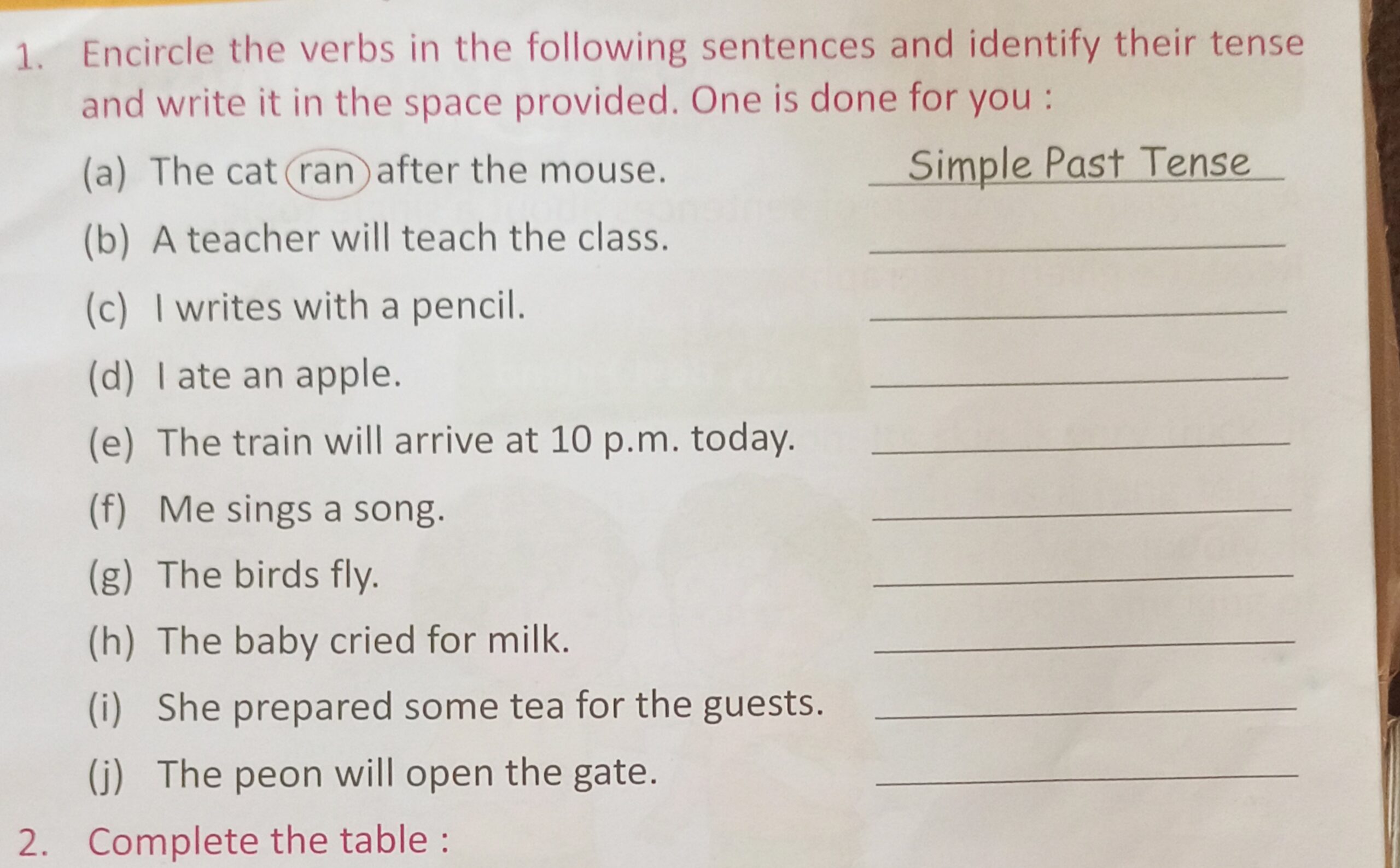Verbs are an essential part of any sentence. They express action, state, or occurrence. Understanding the tense of a verb is crucial for conveying the time at which an action takes place. By identifying verbs and their tense, one can effectively communicate the sequence of events in a sentence.
Verbs can be classified into different tenses based on when the action occurs – past, present, or future. Each tense has its own set of rules for conjugation and usage. By recognizing the tense of a verb, one can provide clarity and accuracy in writing.
Identifying Verbs and Their Tense
When identifying verbs, it is important to look at the action being performed in a sentence. Verbs can be either action verbs (run, jump, eat) or linking verbs (is, am, are). The tense of a verb indicates the time at which the action is happening. For example, in the sentence “She will sing at the concert,” the verb “sing” is in the future tense.
Verbs in the present tense describe actions that are currently happening or are habitual. For instance, in the sentence “He writes novels,” the verb “writes” is in the present tense. In contrast, past tense verbs indicate actions that have already occurred. For example, in the sentence “She danced at the party,” the verb “danced” is in the past tense.
Future tense verbs express actions that will happen at a later time. In the sentence “They will travel to Europe next month,” the verb “will travel” is in the future tense. Additionally, verbs can also be in the perfect tense, indicating completed actions. For example, in the sentence “He has finished his homework,” the verb “has finished” is in the present perfect tense.
It is important to note that verbs can also be in the progressive or continuous form, indicating actions that are ongoing. In the sentence “She is studying for her exams,” the verb “is studying” is in the present progressive tense. By identifying the tense of verbs, one can effectively convey the timeframe of actions in a sentence.
In conclusion, identifying verbs and their tense is essential for effective communication in writing. Verbs play a crucial role in expressing actions and events in a sentence, and understanding their tense helps provide clarity and accuracy. By recognizing the different tenses of verbs, one can convey the sequence of events in a coherent manner.
